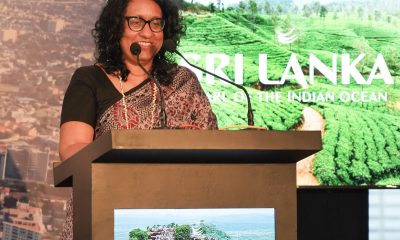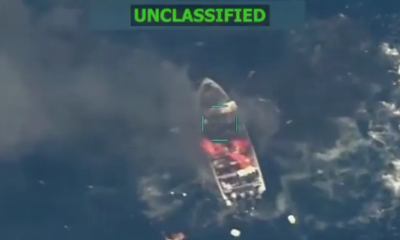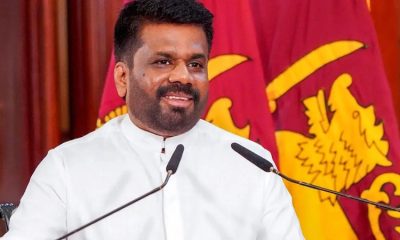News
X-Press Pearl wreck cannot be moved for three months – Officials
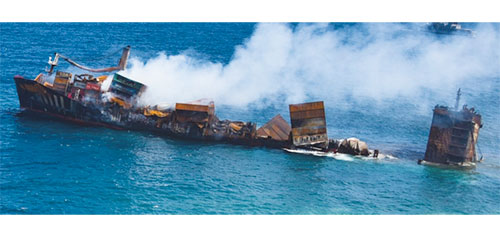
By Ifham Nizam
It would not be possible to tow away the wreck of MVX-Press Pearl until the end of the monsoon season, Environment Ministry Secretary, Dr. Anil Jasinghe said during a discussion under the theme, Looking beyond X-Press Pearl, at the Information Department yesterday in Colombo.
Dr. Jasinghe added that representatives of X-Press Feeders, the operators of the ill-fated ship, were monitoring the wreck through a caretaker company and 10 thematic groups were studying various aspects of the disaster.
“The sea is very rough and we can’t do anything now. We have to wait till things settle down a bit,” Dr. Jasinhe said. None of the officials were willing to reveal the estimated cost of the removal of the wreck.
The plastic pellets that were released with the sire n the ship were being detected on beaches in seven districts, Central Environmental Authority (CEA) Chairman S. Amarasinghe said. The entire coastal stretch from Matara to Mannar has been affected, he said.
“We are keeping the collected pellets for legal purposes and will destroy them later,” he said.
Commenting on the impact the disaster would have on tourism, Sri Jayawardanapura, Economics Department and Forestry and Environment Science, Professor Prasanthi Gunawardena said that losses would be incalculable.
Prof. Gunawardena added that the incident would have a significant impact on the fisheries industry and deprive many Sri Lankans of their main source of protein.
“Children need protein and most of our kids get their protein from fish. How do we calculate the impact this will on their health?
Marine Environment Protection Authority Chairperson, Darshani Lahandapura said that a grey sheen continued to emanate from the vessel, and discolouration of the sea in and around the wreck remains.
“This has been apparent since the vessel’s stern became submerged, and the remnants of the cargo in the 1486 containers that were onboard were exposed to seawater,” she said.
Business
“We Are Building a Stable, Transparent and Resilient Sri Lanka Ready for Sustainable Investment Partnerships” – PM
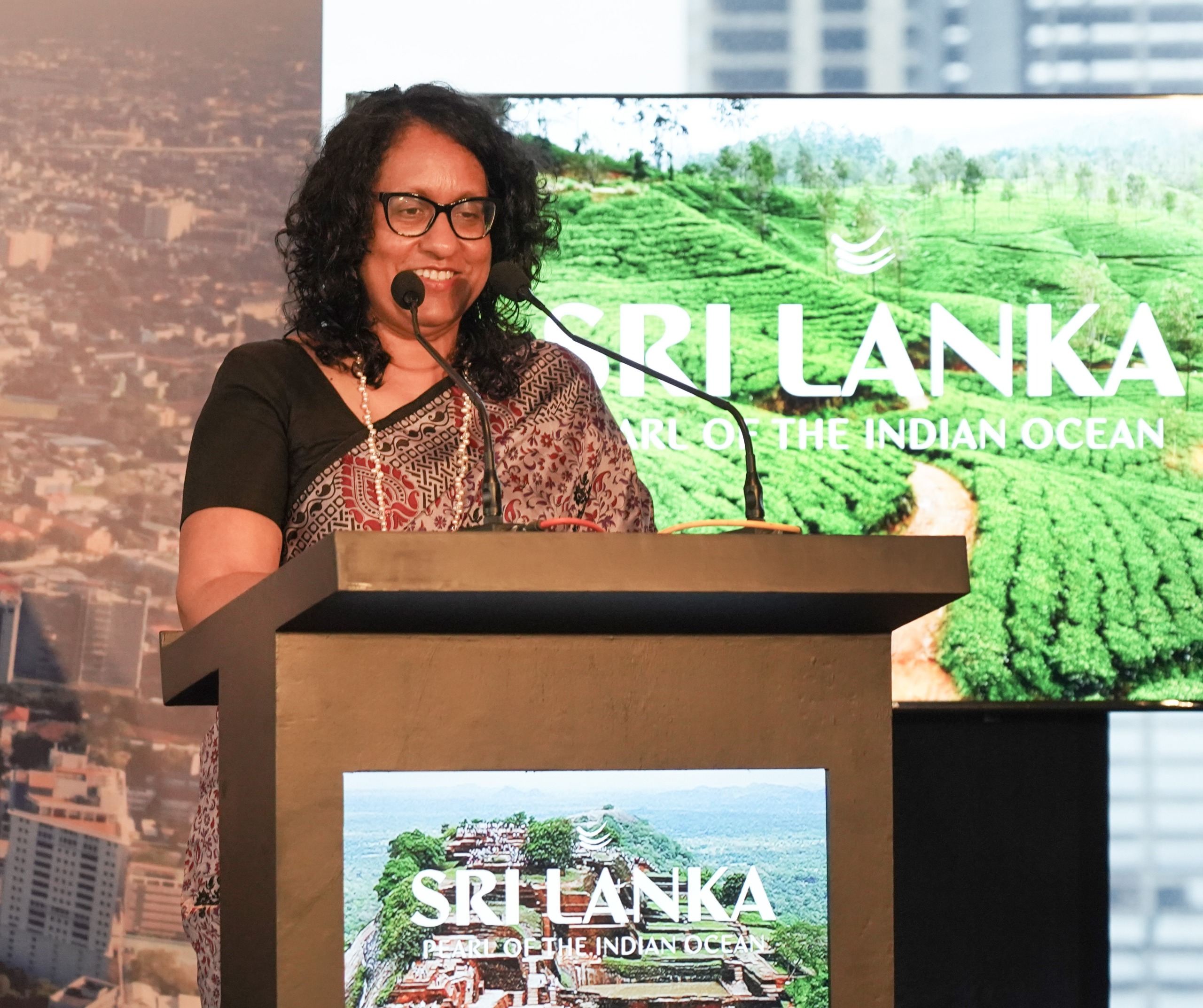
Prime Minister Dr. Harini Amarasuriya addressed members of the Chief Executives Organization (CEO) during a session held on Thursday [3 February 2026] at the Shangri-La Hotel, Colombo, as part of CEO’s Pearl of the Indian Ocean: Sri Lanka programme.
The Chief Executives Organization is a global network of business leaders representing diverse industries across more than 60 countries. The visiting delegation comprised leading entrepreneurs and executives exploring Sri Lanka’s economic prospects, investment climate, and development trajectory.
Addressing the gathering, the Prime Minister emphasized that Sri Lanka’s reform agenda is anchored in structural transformation, transparency, and inclusive growth.
“We are committed not only to ensuring equitable access to education, but equitable access to quality education. Our reforms are designed to create flexible pathways for young people beyond general education and to build a skilled and adaptable workforce for the future.”
She highlighted that the Government is undertaking a fundamental pedagogical shift towards a more student-focused, less examination-driven system as part of a broader national transformation.
Reflecting on Sri Lanka’s recent political transition, the Prime Minister stated:
“The people gave us a mandate to restore accountability, strengthen democratic governance, and ensure that opportunity is not determined by patronage or privilege, but by fairness and merit. Sri Lanka is stabilizing. We have recorded positive growth, restored confidence in key sectors, and are committed to sustaining this momentum. But our objective is not short-term recovery it is long-term resilience.”
Addressing governance reforms aimed at improving the investment climate, she said:
“We are aligning our legislative and regulatory frameworks with international standards to provide predictability, investor protection, and institutional transparency. Sustainable investment requires trust, and trust requires reform.”
Turning to the recent impact of Cyclone Ditwa, which affected all 25 districts of the country, the Prime Minister underscored the urgency of climate resilience.
“Climate change is not a distant threat. It is a lived reality for our people. We are rebuilding not simply to recover, but to build resilience, strengthen disaster mitigation systems, and protect vulnerable communities.”
Inviting CEO members to consider Sri Lanka as a strategic partner in the Indo-Pacific region, she highlighted opportunities in value-added mineral exports, logistics and shipping, agro-processing, renewable energy, pharmaceuticals, and innovation-driven sectors.
“We are not looking for speculative gains. We are seeking long-term partners who share our commitment to transparency, sustainability, and inclusive development.”
She further emphasized collaboration in education, research, vocational training, and innovation as essential pillars for sustained economic growth.
Concluding her address, the Prime Minister expressed appreciation to the Chief Executives Organization for selecting Sri Lanka as part of its 2026 programme and reaffirmed the Government’s readiness to engage constructively with responsible global investors.
The event was attended by the Governor of the Western Province, Hanif Yusoof, and other distinguished guests.
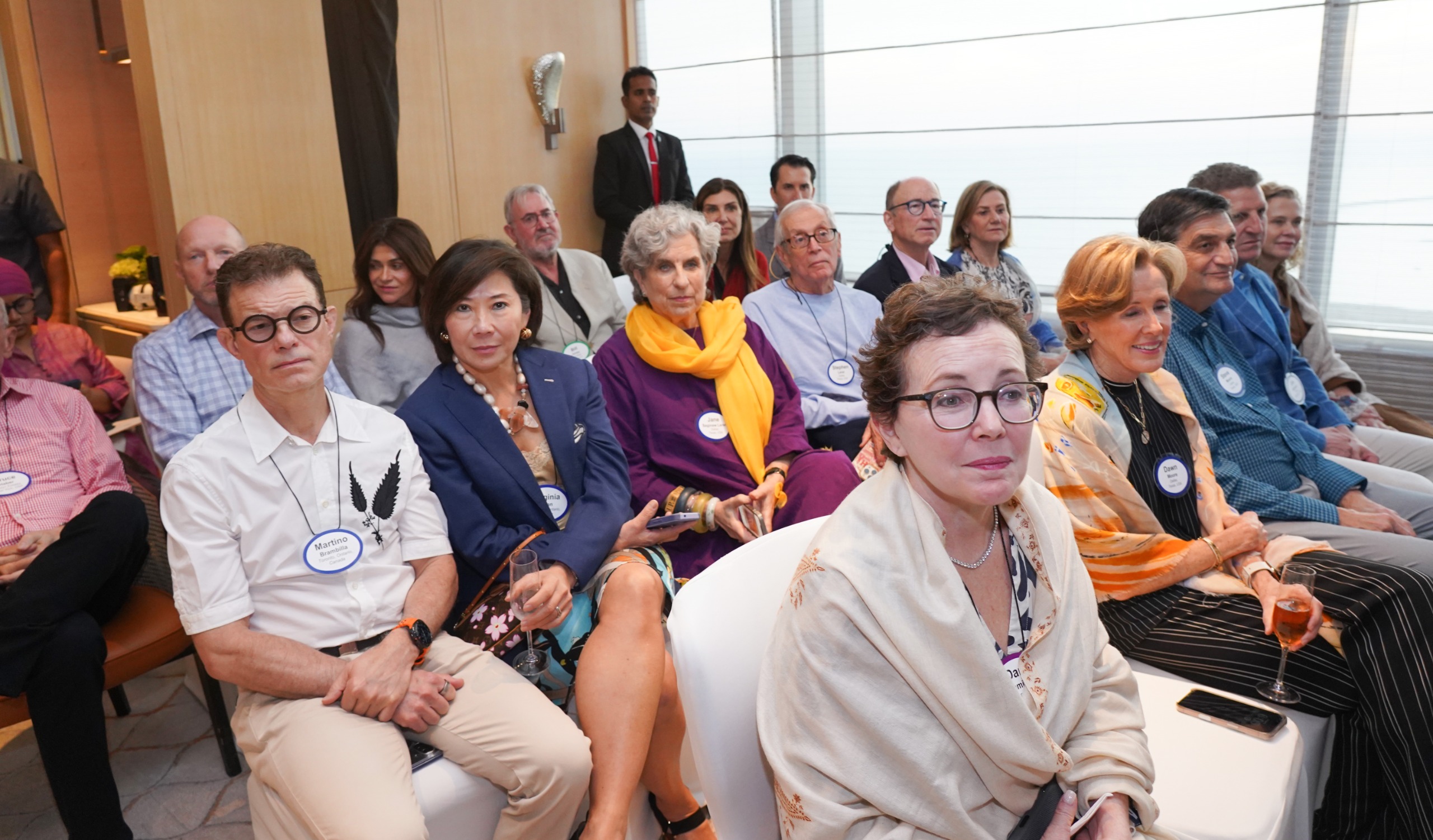
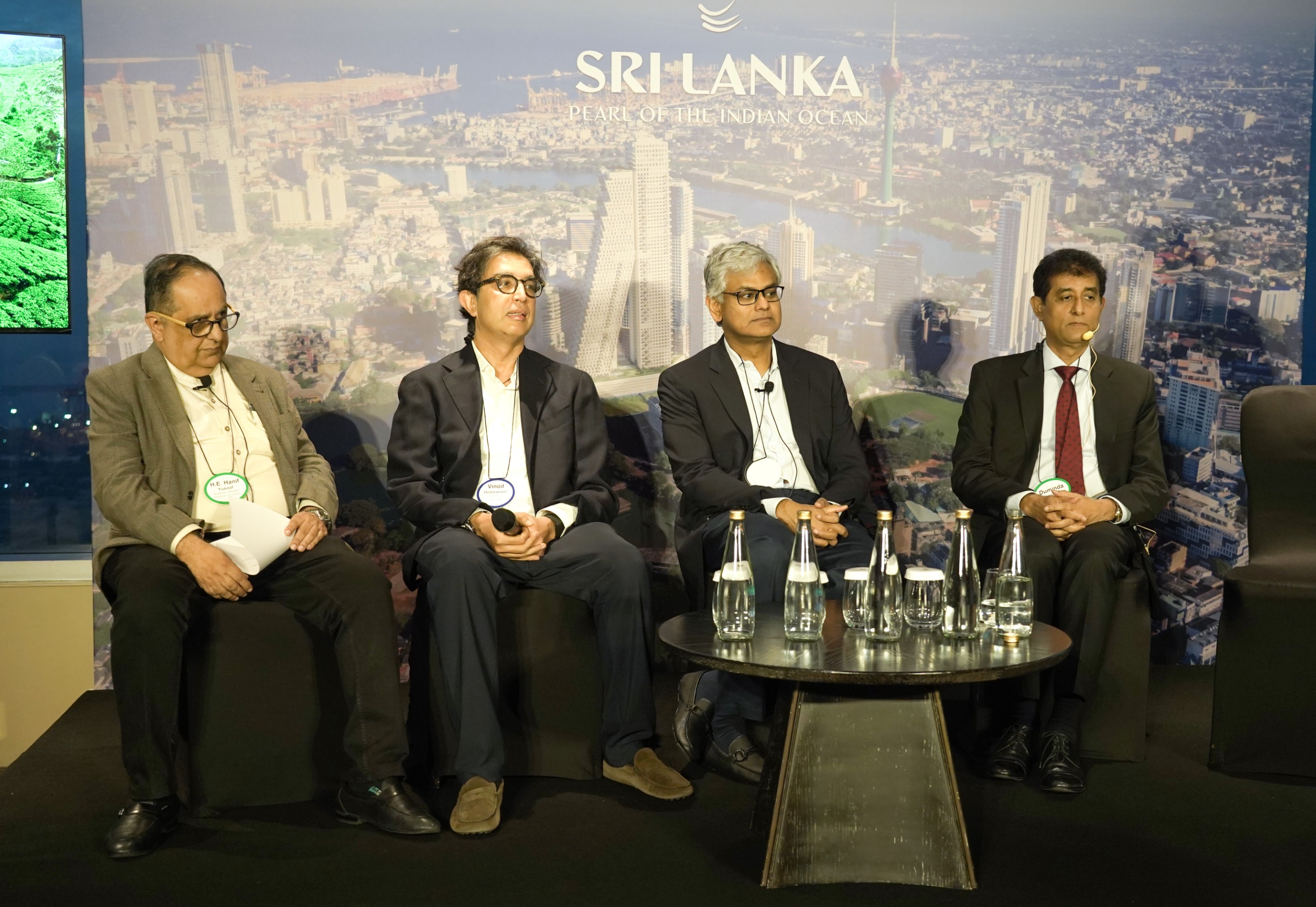
[Prime Minister’s Media Division]
News
Prez AKD congratulates BNP’s Tarique Rahman on B’desh election win
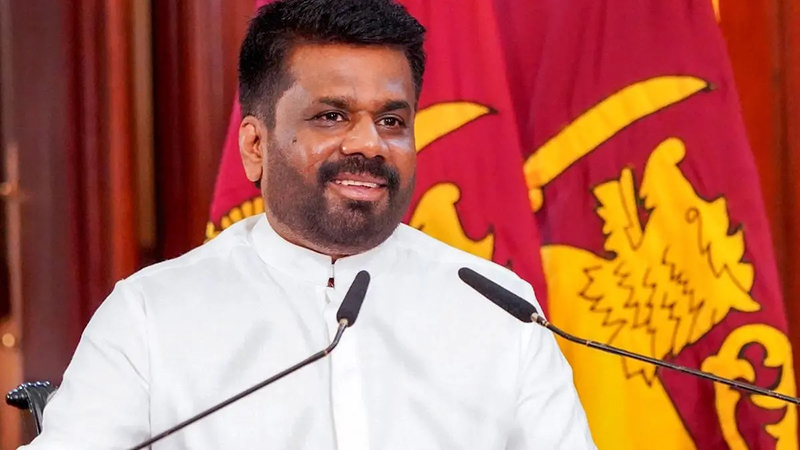
President Anura Kumara Dissanayake has extended his congratulations to the Bangladesh Nationalist Party (BNP) and its leader, Tarique Rahman, following their landslide victory in Bangladesh’s parliamentary elections.
“Best wishes to the people of Bangladesh for reaffirming their faith in democracy, and congratulations to Mr. Tarique Rahman on leading the BNP in these elections. The results reflect the trust placed in him. I look forward to strengthening ties between our two nations,” President Dissanayake said, in a post on ‘X’.
The Bangladesh Nationalist Party won a landslide parliamentary election on Friday, securing a resounding mandate in a pivotal vote that is expected to restore political stability in the South Asian nation.
The parliamentary election held on Thursday was Bangladesh’s first vote since the 2024 Gen Z-driven uprising that toppled long-time premier Sheikh Hasina.
Opinion polls had given BNP an edge, and the party lived up to the forecasts, with the coalition it dominates winning 209 seats to secure an overwhelming two-thirds majority in the 300-member Jatiya Sangsad, or House of the Nation, Jamuna TV showed.
Soon after it won a majority in the overnight vote-count, the party thanked and congratulated the people and called for special prayers on Friday for the welfare of the country and its people.
News
Massive Sangha confab to address alleged injustices against monks
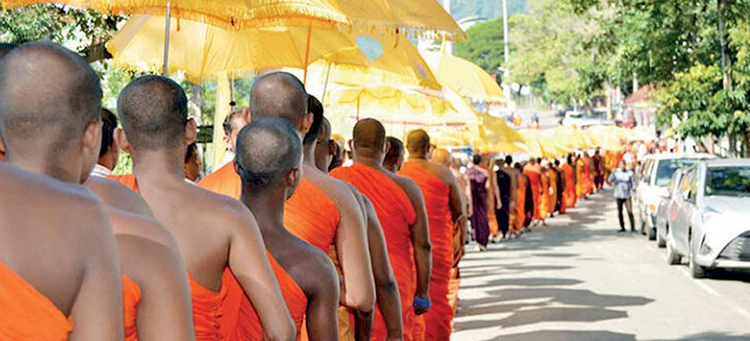
A major Sangha conference will be held on February 20 at 2 PM at the All Ceylon Buddhist Congress (ACBC) Headquarters in Colombo, bringing together both monastic and lay communities to discuss concerns over alleged injustices against Buddhist monks, the Buddha Sasana, and the nation.
Speaking at a press conference in Colombo on Thursday (12), Roshan Maddumage, Deputy Chairman of the ACBC, said the primary aim of the conference is to highlight misconduct and draw government attention to these matters.
ACBC Chairman Chandra Nimal Wakishta emphasized that the country’s legal system appears to operate inconsistently. He noted that while police officers involved in the assault of a Catholic priest were prosecuted and jailed, no investigation has been conducted into police officers accused of assaulting Buddhist monks in Trincomalee.
Wakishta stressed that the Sinhala Buddhist community has historically not engaged in violence or promoted hatred. He added that the Maha Sangha play a central role in guiding and protecting the country and the state, and that harassment or attacks on monks indirectly harm the nation as a whole.
He explained that the decision to convene the Sangha conference stems from the urgency of addressing these serious concerns, with the event expected to serve as a platform for dialogue between the clergy, lay followers, and government representatives.
-

 Business4 days ago
Business4 days agoAutodoc 360 relocates to reinforce commitment to premium auto care
-

 Midweek Review4 days ago
Midweek Review4 days agoA question of national pride
-

 Opinion3 days ago
Opinion3 days agoWill computers ever be intelligent?
-

 Midweek Review4 days ago
Midweek Review4 days agoTheatre and Anthropocentrism in the age of Climate Emergency
-

 Editorial6 days ago
Editorial6 days agoThe JRJ syndrome
-
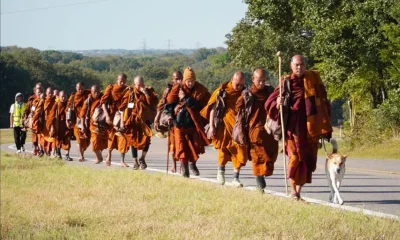
 Opinion4 days ago
Opinion4 days agoThe Walk for Peace in America a Sri Lankan initiative: A startling truth hidden by govt.
-

 Foreign News6 days ago
Foreign News6 days agoPortugal elects Socialist Party’s Seguro as president in landslide
-
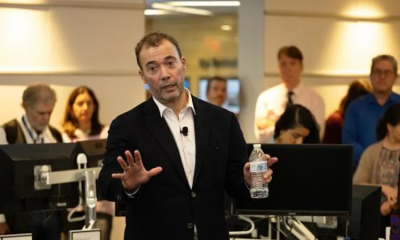
 Foreign News7 days ago
Foreign News7 days agoWashington Post chief executive steps down after mass lay-offs






